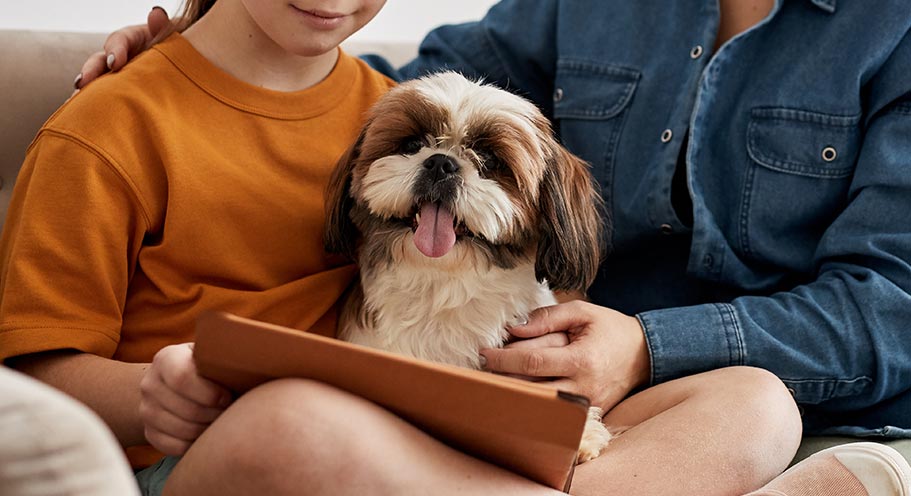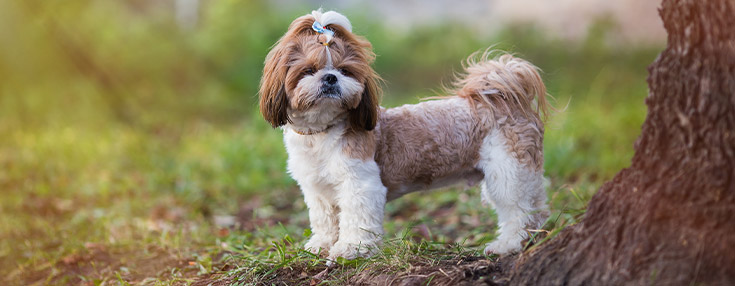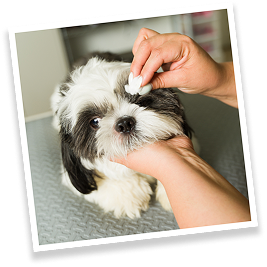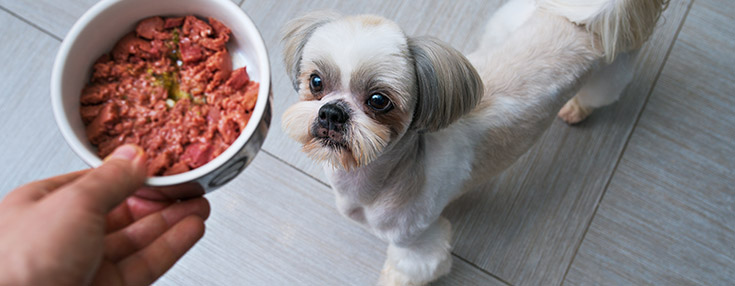
Dog breed – Shih Tzu
Shih Tzu
Affectionate, playful and loyal dogs that make great companions for all ages.
Shih Tzus at a glance
Affectionate, loyal and lovable
Up to an hour of exercise a day
Life expectancy of 10-16 years
Small, between 4kg and 7kg
Shih Tzus temperament and personality
With an extroverted and affectionate personality, Shih Tzus have a lovable nature.
They love their family and are extremely loyal, making them suitable for homes where they won’t be left alone for long periods.
Their loyal nature does mean they can be slightly wary of strangers, but many Shih Tzus are still sociable and friendly. Make sure you keep your Shih Tzu on a lead in busy places to help them cope around strangers.

Shih Tzu training and exercise
While Shih Tzus are smart dogs, and they can be fun to train because of their eagerness to learn.
You can use positive reinforcement to encourage learning and if you can, train them as early as possible.
Get them used to lots of new people, other dogs and new experiences to help them be comfortable around new people.
Consider taking your Shih Tzu puppy to a few training classes to socialise them with other pooches. If you adopt an older Shih Tzu, try taking them on a walk with a friend and their dog to introduce them to other dogs and people.
Shih Tzu dogs are small but mighty, so an hour of exercise a day, split into a couple of walks or activities will keep them happy.

Common Shih Tzu health conditions
Shih Tzus commonly suffer from the following illnesses:
- dental issues (tooth decay, gingivitis, etc.)
- eye problems (dry eye, cataracts, pigmentary keratitis, etc.)
- patellar luxation
- hip dysplasia
- Brachycephalic Syndrome
- ear infections
- obesity
While some of these conditions are genetic or age-related, you can reduce the likelihood of illnesses by feeding your Shih Tzu a healthy diet, taking them for regular vet check-ups and making sure they have enough recommended exercise.
To help reduce the risk of dental issues, you can regularly brush their teeth using a firm baby toothbrush or a finger toothbrush, and water or veterinary approved toothpaste (human toothpaste is toxic as its fluoride content is too high for animals).
Shih Tzus feeding and nutrition
Shih Tzus should be fed a complete, balanced diet of protein, carbohydrates and fats.
Small amounts of vegetables like carrots, broccoli and green beans can add extra vitamins to your Shih Tzu’s diet.
Shih Tzu grooming
As notoriously fluffy dogs, Shih Tzus need to be taken to a groomer every 4-6 weeks to keep their coat healthy and free of matting and dirt.
You can also brush your Shih Tzu every other week to freshen up their coat.

Things to know before you buy or adopt a Shih Tzu
Before you bring a Shih Tzu home, keep the following points in mind:
- Shih Tzus like their periods of rest, so try not to over-exercise them, especially if you have children.
- Shih Tzus can be prone to obesity, so it’s important to keep an eye on their weight and what they eat.
- Expect your Shih Tzu to be stubborn at times while training. As we’ve said, using treats for positive reinforcement can help.
When does a Shih Tzu stop growing?
Shih Tzus tend to stop growing at around ten months old and are also considered adults at this point.
Are Shih Tzus good around children?
Shih Tzus are great companions for kids but aren’t the most active of dog breeds. They enjoy their downtime, but are very affectionate and friendly, which makes them a good choice for families.